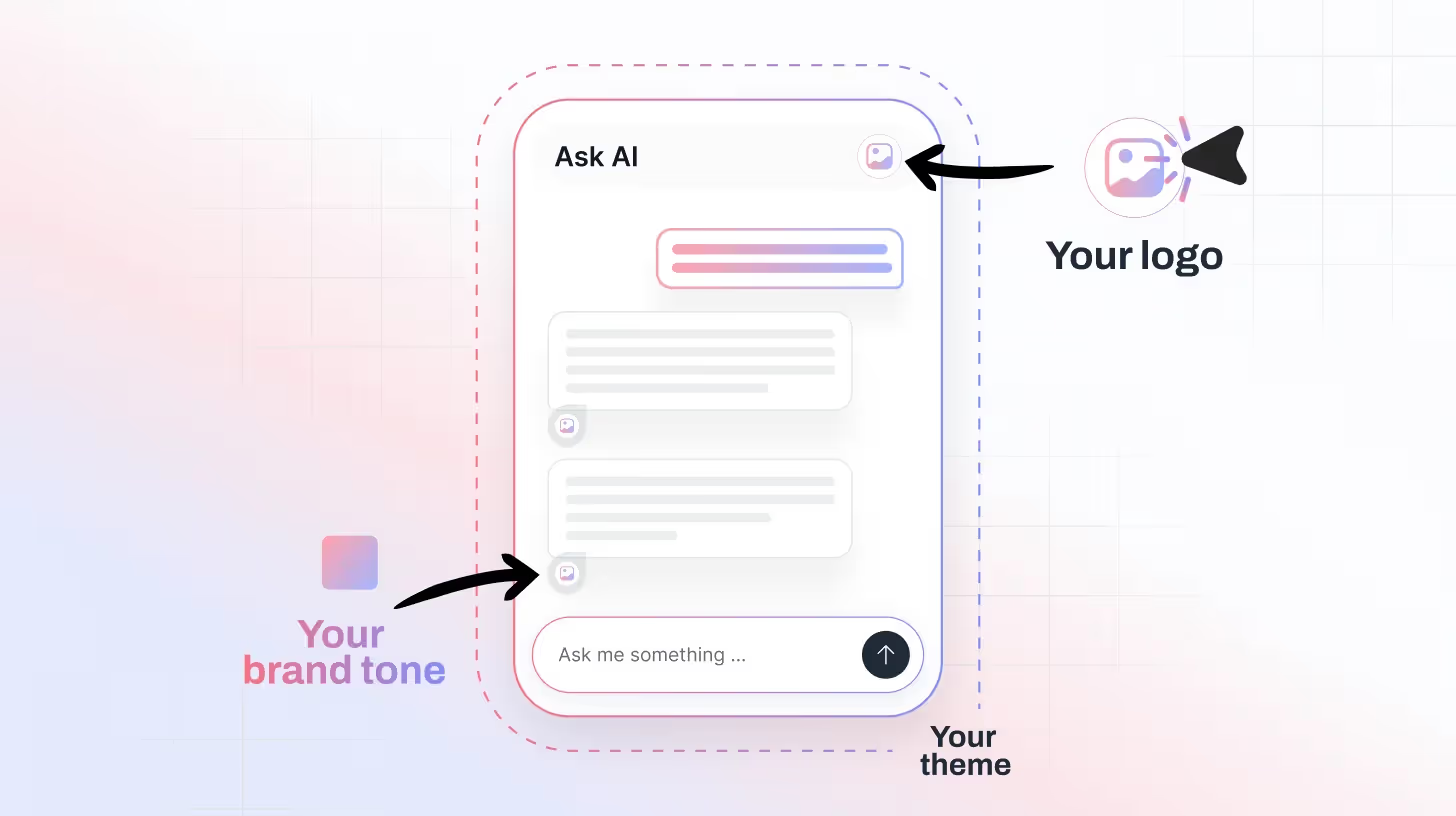Anonymous Employee Surveys: Questions, Examples, and Best Practices

As a business owner, you know that happy employees are productive employees. But here’s the problem: many workers hesitate to share their true thoughts, whether about workload, management, or culture, because they fear backlash.
An anonymous employee survey removes this fear by allowing people to provide feedback without being identified. When employees know their voices are safe, they’re more candid, honest, and helpful.
According to Gallup, only 21% of employees worldwide are engaged at work, and a lack of trust in leadership is a big reason why. Anonymous surveys bridge this gap, giving you the insights you need to improve culture, retention, and performance.
TL;DR
Anonymous employee surveys help organizations collect honest feedback without fear or bias. They build trust, uncover workplace challenges, and improve culture when done right. In this guide, we share 70+ example questions across onboarding, leadership, DEI, wellness, remote work, and more, plus best practices to design surveys that employees actually trust.
What Is an Anonymous Employee Survey?
An anonymous employee survey is a feedback tool that collects responses without storing personal identifiers like name, email, employee ID, or department.
This is different from a confidential survey, where responses are tied to individuals but kept private by HR. With anonymity, no one, not even administrators, can link answers back to employees.
This distinction is crucial. True anonymity helps employees feel safe, while confidentiality may still create hesitation.
Benefits of Anonymous Employee Surveys
The following are the key benefits of running anonymous employee surveys that every organization should know:
Candid Feedback: Employees can finally speak their minds without the fear of judgment or retaliation.
More People Join In: Participation rates shoot up when employees know their identity is fully protected.
Spot the Real Issues: Anonymous surveys reveal problems such as poor management, burnout, or even workplace misconduct issues that often remain hidden in open feedback.
No “Polished” Answers: Without pressure to sound good, employees give real, honest opinions instead of the safe, “socially acceptable” ones.
Happier Teams, Lower Turnover: When employees feel heard and see changes happening, they stick around longer and stay more engaged in their work.
Downsides to Anonymous Employee Surveys
While powerful, anonymous surveys aren’t perfect:
- No Follow-Up: If someone flags a problem without details, you can’t ask clarifying questions.
- Limited Segmentation: Without identifiers, you can’t compare data across teams, roles, or departments.
- Unconstructive Complaints: Some responses may vent frustrations without offering solutions.
To overcome these challenges, carefully design your survey questions to capture the “why” behind feedback.
When to Use Anonymous Employee Surveys
Anonymous surveys are versatile and can be applied in multiple workplace scenarios:
Employee Engagement Surveys
Engagement reflects how committed employees are to their work and the company. Since quiet quitting is on the rise, engagement surveys should be anonymous to get the real truth about motivation, recognition, and workload.
Employee Satisfaction Surveys
Satisfaction covers job happiness, benefits, culture, and leadership. Anonymous surveys here help uncover why employees may feel dissatisfied, whether it’s pay, recognition, or lack of growth opportunities.
Employee Exit Surveys
Departing employees often hold back in HR interviews. Anonymous exit surveys provide more candid insights into why they’re leaving, helping you reduce turnover in the future.
Complaint & Incident Reporting
Anonymous complaint forms provide employees with a safe channel to report misconduct or unfair treatment without fear of retaliation, making them more likely to come forward.

Use Case: How TheySaid Helped Boost Employee Retention
A mid-sized tech company was struggling with high turnover rates and suspected that employees weren’t being open in traditional surveys. Many team members feared that their feedback could be traced back to them, leading to surface-level answers and missed red flags.
By switching to TheySaid’s anonymous employee surveys, the HR team collected candid insights on issues like poor communication, lack of career development opportunities, and burnout from unrealistic deadlines.
TheySaid’s AI-powered analysis highlighted recurring themes in real time, giving leaders a clear picture of employee sentiment. Within six months, the company:
- Reduced turnover by 18%
- Launched a new mentorship program based on employee feedback
- Improved leadership communication scores by 30%
- Saw a measurable boost in employee engagement and trust
70+ Anonymous Employee Survey Questions to Unlock Honest Feedback
Anonymous employee surveys are one of the most powerful tools for getting real, unfiltered insights from your workforce. When employees know their identity won’t be revealed, they feel safe to share genuine thoughts on leadership, culture, onboarding, well-being, and more.
Use these 70+ anonymous survey questions to design a high-impact employee survey that drives engagement and helps you improve retention, satisfaction, and productivity.
Anonymous Onboarding Survey Questions
New hires bring a fresh perspective and can often spot gaps in onboarding or training that longtime employees overlook. Anonymous onboarding survey questions help you refine the experience and support new employees better.
- On a scale of 1–10, how welcome did you feel when you joined?
- How effective was the onboarding process in preparing you for your role?
- Do you feel you received enough training and resources to succeed?
- Have you been able to build meaningful relationships with colleagues?
- Do you feel supported by your manager in your early days?
- Is your current role what you expected during hiring?
- What could we improve in the onboarding process?
Fun & Engagement Anonymous Survey Questions
Adding lighthearted, anonymous survey questions can make employees more relaxed and open, while also revealing what drives motivation and culture. These questions keep surveys engaging without being overly formal.
- If your workday had a theme song, what would it be?
- What’s your go-to celebration move when you achieve something big?
- If you could have any superpower at work, what would it be?
- What’s the funniest or most memorable moment you’ve had here?
- If you could switch jobs with someone for a day, who would it be?
- What’s the most unique item on your desk?
- If you could plan one company-wide event, what would it be?
Anonymous Exit Survey Questions
Exit surveys are crucial for uncovering why employees leave. Anonymous exit survey questions encourage honest responses without fear of burning bridges, giving you actionable insights to improve retention.
- What was the main reason for leaving the company?
- Did you feel valued during your time here?
- How satisfied were you with leadership support?
- Did you feel you had enough growth opportunities?
- What improvements could have encouraged you to stay?
- How would you describe the company culture?
- Did you feel your ideas were listened to?
- Were there challenges that made your work difficult?
- What would make this company a better place to work?
Diversity, Equity & Inclusion (DEI) Anonymous Survey Questions
A strong workplace is one where everyone feels valued and included. Anonymous DEI survey questions help employees speak freely about sensitive issues, ensuring leaders can identify and address hidden problems.
- Do you feel our company promotes inclusivity and belonging?
- Have you witnessed or experienced discrimination at work?
- Do employees from all backgrounds have equal growth opportunities?
- Do you feel comfortable speaking up about DEI issues?
- How effective are our diversity policies and initiatives?
- Have you received training/resources on DEI awareness?
- What can we improve to strengthen diversity and inclusion?
Purpose & Satisfaction Anonymous Survey Questions
When employees understand their purpose, they feel more motivated and fulfilled. These anonymous questions explore job satisfaction, recognition, and alignment with the company's mission.
- Do you feel your work aligns with the company's mission?
- On a scale of 1–10, how fulfilled are you in your role?
- Do you believe your work has a meaningful impact?
- Do you feel recognized for your contributions?
- How satisfied are you with autonomy in your role?
- Do you feel motivated to do your best work daily?
- What could increase your sense of purpose here?
- Are you proud to work for this organization?
- Do you see yourself working here in the next 2 years?
Anonymous Leadership Survey Questions
Trust in leadership is key to retention. Anonymous leadership survey questions help reveal how employees really feel about managers and executives, without fear of backlash.
- Does your manager set clear expectations?
- Do you feel leaders are transparent in communication?
- Does your manager actively listen to feedback?
- Do you receive constructive feedback regularly?
- Do leaders demonstrate company values?
- How well does leadership support employee development?
- Do you trust the decisions made by leadership?
- Do you feel leaders genuinely care about employees?
- What could leadership do better to support you?
Work Environment & Development Anonymous Survey Questions
A healthy work environment improves collaboration, productivity, and satisfaction. These anonymous survey questions dig into resources, growth opportunities, and learning culture.
- How would you rate collaboration within the company?
- Do you feel you have the right tools/resources for your job?
- How satisfied are you with professional growth opportunities?
- Does the company encourage continuous learning?
- How well does the organization promote work-life balance?
- Do you feel your skills are fully utilized?
- Do you feel comfortable sharing new ideas here?
- What’s one thing we could change to improve your work environment?
Health & Wellness Anonymous Survey Questions
Employee well-being is directly tied to performance and retention. Anonymous health and wellness survey questions encourage honest feedback about stress, mental health, and company support.
- Do you feel comfortable taking sick leave when needed?
- How supportive is the company toward mental health?
- Do you think wellness programs are effective?
- Do you feel work stress is manageable?
- Do you feel encouraged to maintain a healthy work-life balance?
- Have you been given enough resources on physical/mental health?
- What improvements could be made to support well-being?
Remote Work & Flexibility Anonymous Survey Questions
Remote and hybrid setups can be challenging. These anonymous survey questions uncover how well employees are adapting, collaborating, and balancing life while working remotely.
- Do you feel supported while working remotely?
- Do you have the right tools to be productive remotely?
- How satisfied are you with communication in remote settings?
- Do you feel connected with your team while remote?
- Does remote work affect your work-life balance positively?
- What challenges do you face working remotely?
- How could we improve the remote work experience?
- Do you feel flexible scheduling options meet your needs?

Tips for Creating Anonymous Employee Surveys
Anonymous employee surveys only work when your team feels confident their identity is truly protected. At TheySaid, we’ve built AI-powered surveys and interviews that go beyond traditional tools, ensuring employees can be open, candid, and completely safe when sharing feedback.
Make Your Survey Truly Anonymous
When using TheySaid, no personally identifiable information (PII) is collected unless you explicitly choose to. That means no hidden tracking of emails, IP addresses, or employee IDs. Our AI survey system is designed to protect respondents, so employees can speak freely without second-guessing whether their comments can be traced back to them.
Be Transparent About Anonymity
One of the most common employee questions is: “Are these surveys really anonymous?” Address this upfront. In your survey introduction, explain how anonymity is maintained, and reassure employees that their feedback is used only to improve the workplace—not to single them out. At TheySaid, every survey link comes with a clear message on anonymity to build trust and boost response rates.
Craft Thoughtful Questions
Your questions should invite honest insights while avoiding identifiers. Don’t ask for names, job titles, or details that could reveal someone’s identity. Instead, focus on behaviors, experiences, and feelings. For example:
- Instead of: “Do you get along with your manager?”
- Ask: “Does your manager provide recognition and support for your work?”
TheySaid’s AI can even suggest smarter, bias-free questions, so you collect responses that are clear, actionable, and easy to analyze.
Respect Anonymity—Always
The moment you try to guess “who said what,” you break trust. Even if you think you recognize someone’s writing style, resist the urge. At TheySaid, anonymity isn’t just a feature, it’s a promise. We keep responses aggregated so leaders can act on insights without risking employee trust.
Start Your Anonymous Employee Survey with TheySaid
Whether you want to uncover what’s blocking employee engagement, explore satisfaction levels, or understand why talent is leaving, TheySaid makes it easy to launch anonymous surveys in minutes. Our AI-powered platform ensures safety, builds trust, and gives you insights that lead to meaningful change.
Don’t create a survey. Start a conversation. With TheySaid, your employees feel safe, and you get the truth you need. Sign up for free!
FAQs
Why should companies use anonymous surveys?
Anonymous surveys encourage employees to give candid feedback without fear of judgment or retaliation. This helps companies uncover hidden issues, improve culture, and boost engagement.
What types of questions should be included in an anonymous employee survey?
You can include questions on onboarding, leadership, workplace culture, job satisfaction, diversity & inclusion, mental health, remote work, and career growth.
How often should you run anonymous employee surveys?
Most companies run them quarterly or biannually. However, pulse surveys (short, frequent check-ins) can be done monthly to track ongoing engagement.
















.svg)